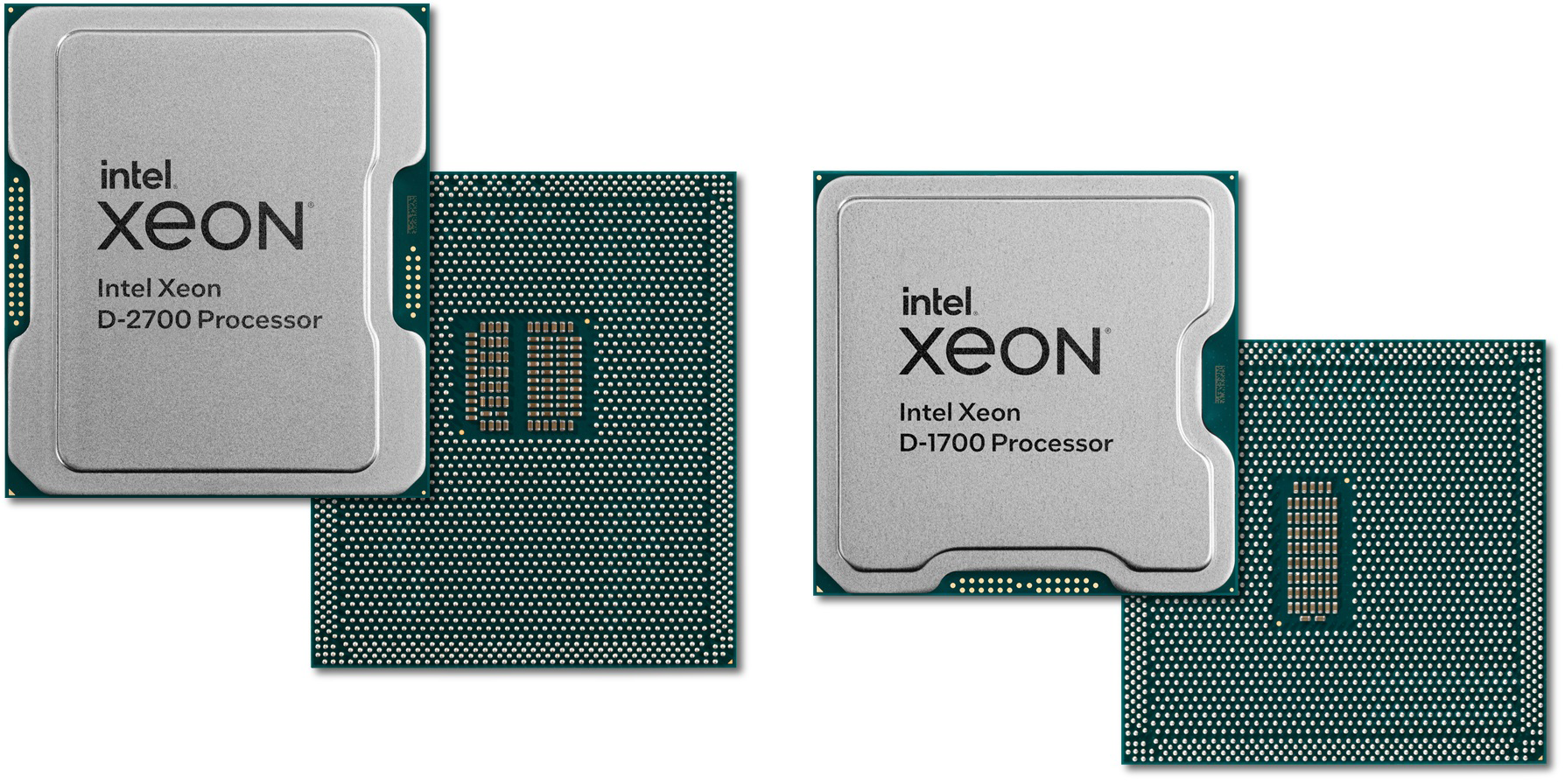Intel's Xeon D-1700/2700 'Ice Lake-D' CPUs: Up to 20 Cores
Intel launches Ice Lake-D SoCs for software-defined network and edge.
This week Intel introduced its Xeon D-1700/2700-series CPUs that offer up to 20 cores, AI and crypto acceleration, built-in Ethernet, and enhanced reliability. Intel's Xeon D-series processors are meant for servers that power the connected devices and services we use daily and combine serious performance with rich connectivity.
Intel's new-generation Xeon D 'Ice Lake-D' system-on-chip family for infrastructure and edge servers consists of two separate product lines: the Xeon D 1700-series featuring from 2 to 10 cores and up to 15MB of cache as well as the Xeon D 2700-series offering from 4 to 20 cores and up to 30MB of cache. The CPUs feature two or four DDR4 channels supporting 256 GB to 1 TB memory; 16, 32, or 64 PCIe 4.0 lanes, 24 SATA ports and up to 100GbE of Ethernet throughput capability. The TDP of the new SoCs varies from 25W to 129W. In total, there will be 36 SKUs in the Xeon D-1700/2700 lineup.
As a part of the Ice Lake family of processors, the new server-grade SoCs are powered by Intel's Sunny Cove microarchitecture and support the company's latest instruction set enhancements (e.g., AVX512VNNI for accelerating inner convolutional neural network loops used for AI/inference workloads), special-purpose accelerators (e.g., hardware-accelerated SHA encryption), and features (total memory encryption, SGX oversubscription instructions).
While Intel's Xeon D 1700/2700-series processors do not offer extreme core counts or vast pools of memory supported that are required for performance-demanding workloads like running databases and other demanding applications, these SoCs provide enough performance for things like AI inferencing and edge servers; enterprise routers and switches; Virtualized radio access networks (vRAN); storage servers; and security appliances. While edge servers are largely an emerging application, other kinds of devices are seamlessly used by billions of people every day without even knowing it.
"These processors power solutions that will infuse your network and edge with the computing, Ethernet connectivity, and security to handle the coming wave of demand at the edge," wrote Jennifer Panhorst, a vice presideent at Intel's data platforms group, in a blog post. "The Intel Xeon D-1700 and D-2700 family of processors enable scalability of software investment and reduce total cost of ownership (TCO) with a durable, intelligent infrastructure."
Intel says that over 70 companies plan to design servers around its Xeon D-1700 and Xeon D-2700 processors, including including Cisco, Juniper Networks and Rakuten Symphony.
Get Tom's Hardware's best news and in-depth reviews, straight to your inbox.

Anton Shilov is a contributing writer at Tom’s Hardware. Over the past couple of decades, he has covered everything from CPUs and GPUs to supercomputers and from modern process technologies and latest fab tools to high-tech industry trends.
